CONSIDERING WATER'S CONNECTION WITH CLIMATE
Cassie is attending Uni evening classes in Environment and Sustainability, learning about human and physical geography)
In 2009, Johan Rockström gathered scientists to observe the main human factors affecting the environment, all of which came up with nine and classified them as 'planetary boundaries'.
Nine Planetary boundaries.
According to Rockström (2009) The boundaries are:
Chemical pollution - there is a significant and unhealthy increase in chemical pollutants like carbon dioxide in our atmosphere.
Climate change - the climate's rapid pattern changes due to the emission of greenhouse gasses.
Ocean acidification - the PH levels in water becoming acidic due to carbon dioxide dissolving in the ocean.
Atmospheric ozone depletion - when the Earth's ozone layer thins out due to toxic chemicals (increasing exposure to sun radiation).
Biogeochemical cycles -interference with nitrogen and phosphorus cycles - soil and water contamination due to excessive nitrogen and phosphorus.
Global freshwater cycle - the continuous cycle of water on Earth and the atmosphere (the issues once contaminated).
Land system change - human action of changing land use, land, I.e., tropical forests to animal fields.
Loss of biodiversity - the decrease in biosphere species.
Atmospheric aerosol loading - tiny particles of different substances held in the atmosphere due to different releases, I.e., carbon dioxide due to cars.
---
Water is one of the essential compounds every living species on Earth relies on to live. As seen in the diagram above, freshwater use and ocean acidification have not been heavily affected as of yet and are still classified as safe (below boundary); however, when looking at biogeochemical flows, it has surpassed the beyond zone of uncertainty, which is directly linked to the contamination of water.
Water pollution has a pernicious effect on the planet.
Biogeochemical flows link to this issue significantly and have surpassed the "beyond the zone of uncertainty". The process takes place when chemical fertilizers are added to soils to support growth and productivity; however, this can lead to excessive plant growth, also known as 'eutrophication' when all the minerals in the soil are washed into the water which contaminates it, too many minerals and excessive plant growth make it undrinkable and considered 'wastewater'. Eutrophication reduces oxygen, killing all fish and aquatic animals (Munir et al. 2016). Pesticides have also been found in water bodies which are dangerous on non-flowing bodies of water (e.g., ponds) because toxic waters stay in the same place, which would ultimately result in the death of aquatic life or make it more difficult for them to reproduce (Bhateria & Jain, 2016).
Water pollution can be impacted by physical products too made by human beings, like cement or heavy metals. Heavy metals affect fish survival rates and behavior. On a larger scale, actions like oil spills take on a more profound and wide scale issue, especially in the greater ocean. Oil spills disrupt an animal's senses, such as finding food or mating, in fatal circumstances suffocating vital organs and increasing the chances of attracting parasites (Wright et al., 2013). Rhodes (2018) claimed that large water waste like plastic had become a global problem, as most plastics do not decompose and would often break down, leading to microplastics.
Larger sea life animals like turtles get into accidents like getting caught in plastic products or ingesting it (microplastics can be as tiny as zooplankton); microplastics have been found in animal life which reduces food consumption, resulting in weight loss and, in common cases, get ingested by people. Sealife birds have been reported to have ingested thirty pieces of plastic and fed it to their nestlings as they confuse it for prey.
The planetary boundaries once defined by Johan Rockström were solely caused by human action, and taking the first step in addressing biosphere integrity helps build a foundation for aiding all the other planetary boundaries – which need our help. Every action we have taken to 'evolve' and develop to make our lives easier has been at the cost of the planet.
We must take crucial steps to support and secure a planet worth living on for every species, ecosystem and future generation.
I think there are many solutions and answers to this overwhelming reality. Educating others, supporting others to understand and become aware of their own actions and choices, could help to make a difference. We have to make sacrifices for biosphere integrity.
For me, as a fellow and a young person, a project like Global Generation Voices of the Water is crucial today. Finding myself exploring the historical, local, cultural, mythical, personal and scientific aspects of water, was a gift to me and I believe to all participants, from primary schools to elderly people who have been involved in our intergenerational projects.
With small actions and rituals, like dropping a hydrophone in the canal or just taking time to listen to older women's memories about water, we do things that can make us activists and change our way of looking at the world as full of gifts rather than resources to use. The exposure and awareness VOW brings with every session, makes me grateful for something I take for granted and how important it is to me and every living being on earth.
The Voices of the Water project took me on a journey: from the beginning of time, when life first formed in water to inquires about the climate, from the history of the canal and the river Fleet to the making of the Floating Garden. From water extinct species to the thriving wildlife in Camley Street Park Ponds.
Since I was a child, I’ve always been told to switch off the tap when I’m brushing my teeth; I remember seeing a lot of news on TV about how people around the world died because of unsafe drinking-water. I think (and hope) that Young Londoners know how important water protection is. There are young activists and movements all over the world and I have experienced with my eyes the widening of awareness in my streets (a couple of days ago, a boy was going to throw a plastic bottle in our black bin outside, but the friend who was with him told him to put it in the one with blue lid for recycling).
I have asked myself if we have to re-think about how we teach and how we learn things in the academic school system. ‘Environment’ is a topic that became part of the curriculum and I am worried that what “has to be taught and has to be learned" loses its meaning unless we find a personal (not imposed) way of connecting to it. Talking about the Climate Crisis is scary and unsettling. However, Voices of the Water gave me the space to reflect and explore things in inspiring and supportive ways.
I think the combination of being in the story garden, surrounded by plants and insects, and creativity, is the most impactful mix that this project has. Drama, body movement, making things with my hands through sonographics, flags painting and murals, helped me to think and feel part of a bigger picture. It is like the clay, the camera, the brush, the silk were like translators of messages, hopes and fears I have inside.
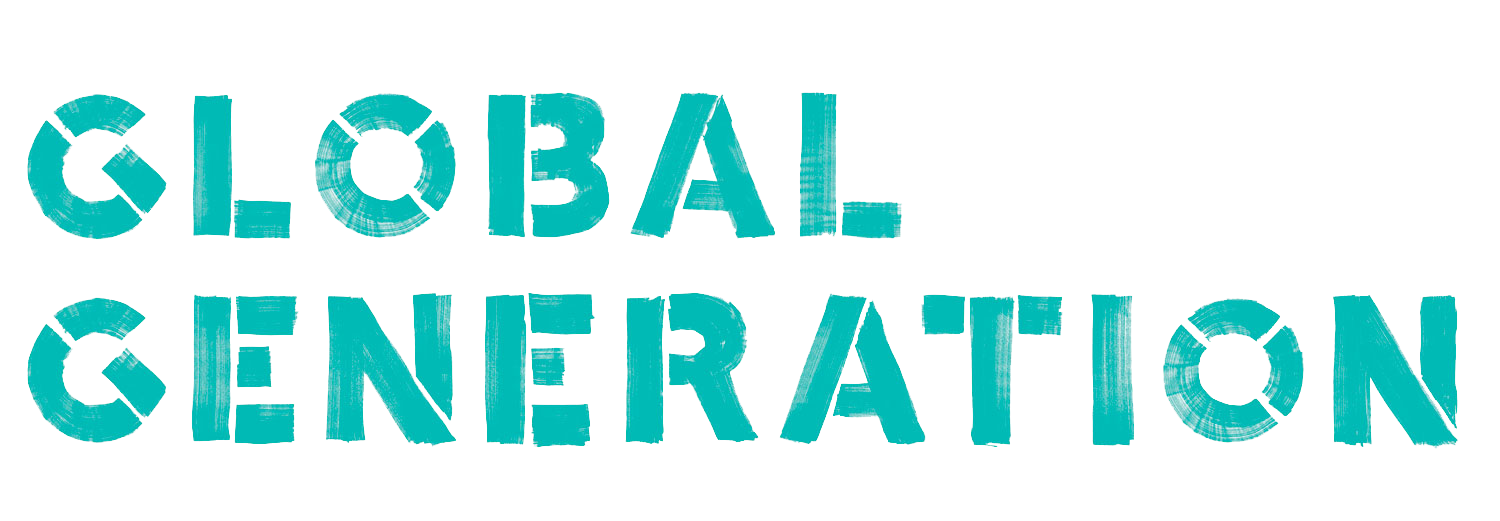


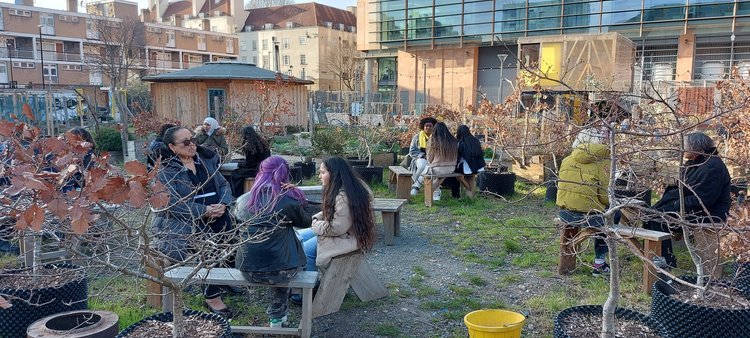
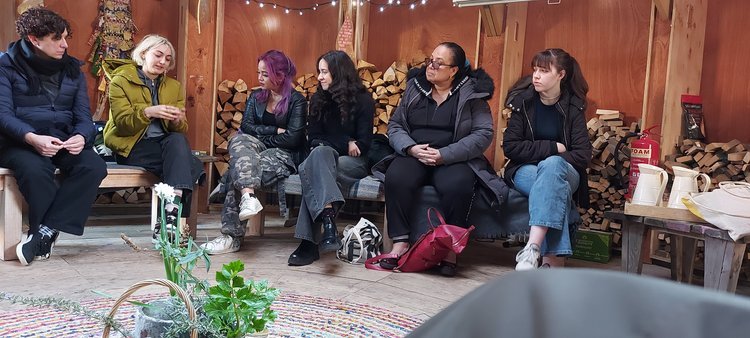
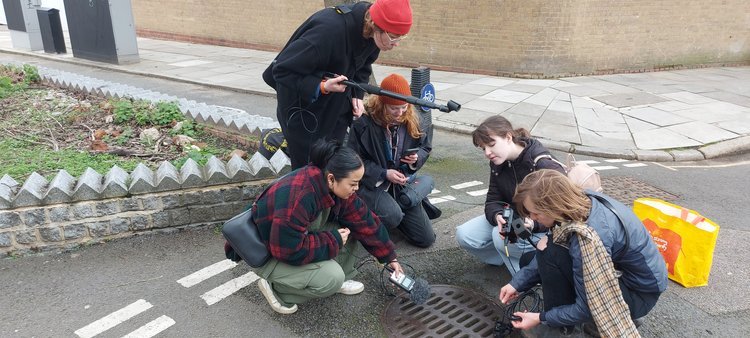
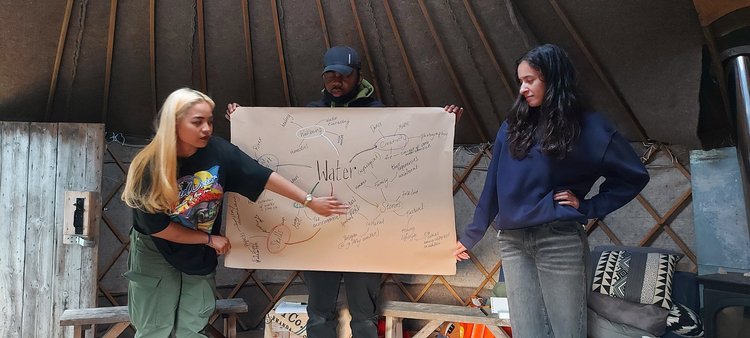
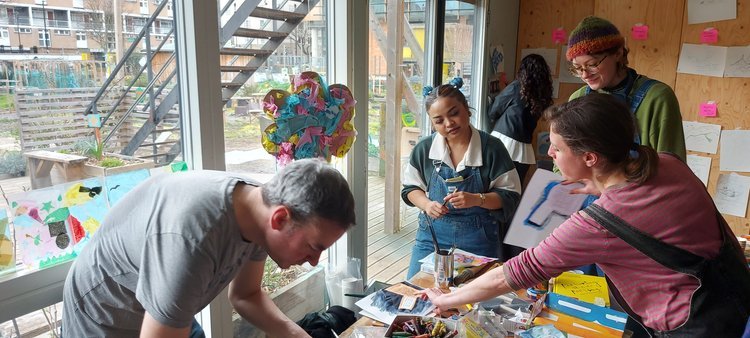
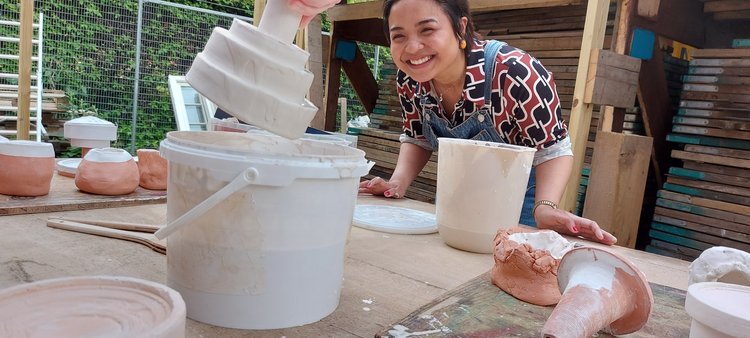
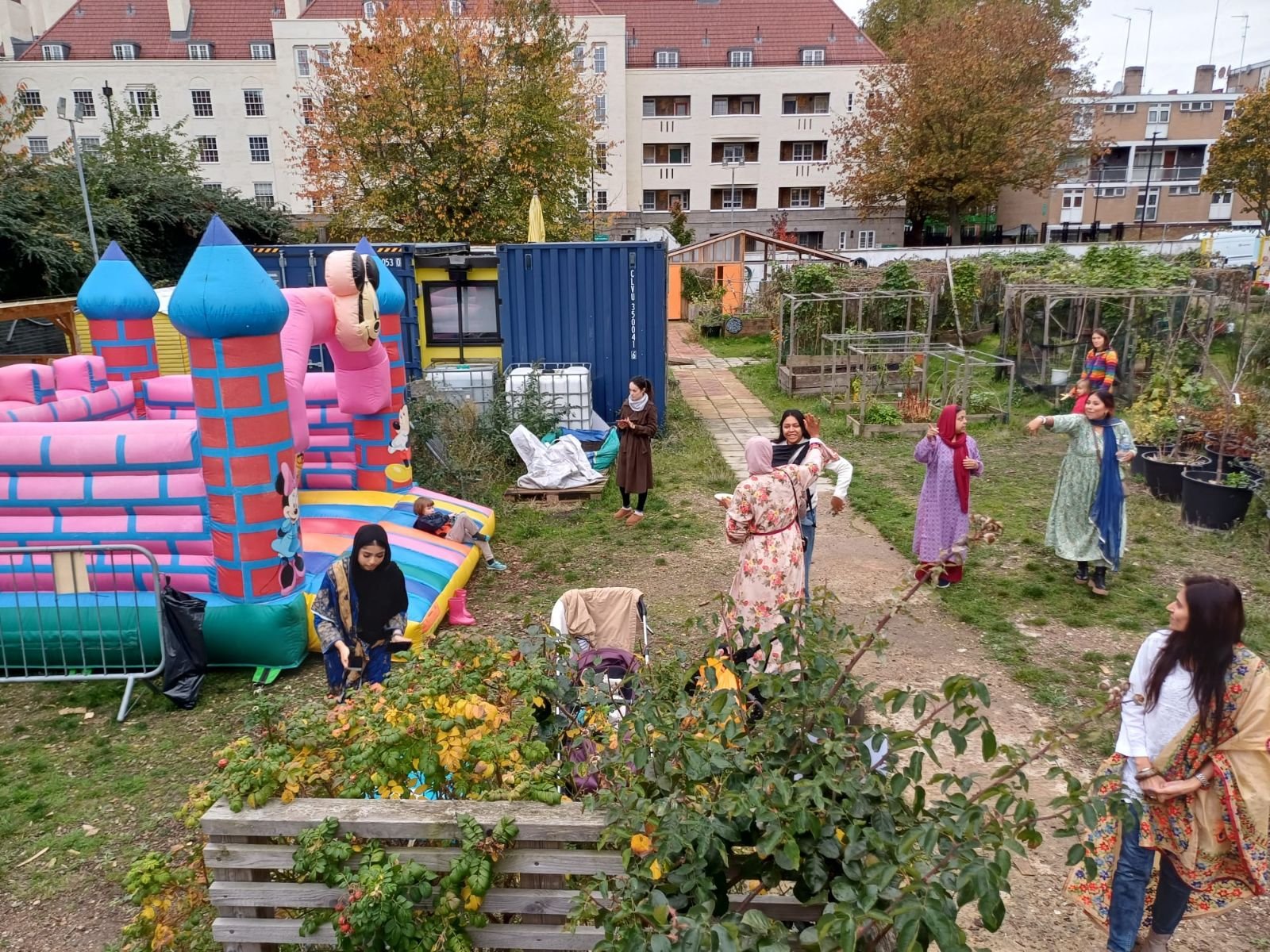

Meet our second cohort of earth build trainees! Their focus has been on all things wood, including green woodworking and the timber construction of the kitchen. They have learned on the job, while working on our sustainable natural build construction project to create our first permanent community garden, at the #TriangleSite.